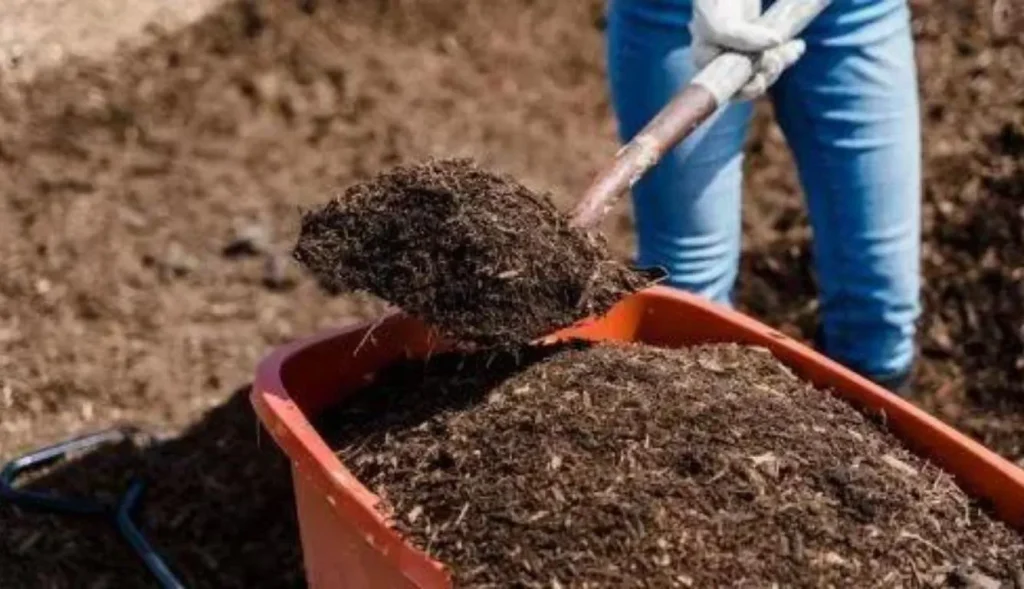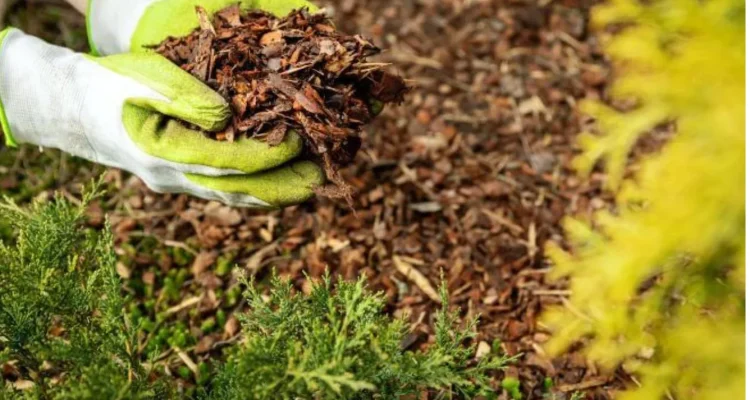Introduction
Mulch is a fantastic addition to any garden, offering numerous benefits such as moisture retention, weed suppression, and soil temperature regulation. However, mulch doesn’t last forever. Over time, it breaks down, loses its effectiveness, and can even become a breeding ground for pests and diseases. Knowing how to dispose of old mulch properly is crucial for maintaining a healthy garden and environment. This guide will walk you through the various methods of disposing of old mulch, ensuring you do it in an eco-friendly and effective manner.

Why Dispose of Old Mulch?
Nutrient Depletion
Old mulch can deplete the soil of nutrients as it decomposes, leading to poor plant health.
Pest Infestation
Old mulch can attract pests such as insects and rodents, which can harm your plants and garden.
Fungal Growth
Decomposing mulch is a perfect breeding ground for fungi and mold, which can spread to your plants and cause diseases.
Signs Your Mulch Needs Replacing
Color Fading
One of the first signs that mulch needs replacing is a change in color. Fresh mulch is vibrant and colorful, but over time, it fades to a dull gray or brown.
Unpleasant Odor
If your mulch starts to smell bad, it’s a sign that it’s decomposing improperly, which can be harmful to your garden.
Compaction and Matting
Mulch should be loose and fluffy. If it has compacted or matted down, it’s no longer effective and needs replacing.
Preparing to Dispose of Old Mulch
Gather Necessary Tools
Before you start disposing of old mulch, gather all necessary tools such as gloves, a rake, and a wheelbarrow.
Plan for Disposal
Decide on the disposal method that suits you best, whether it’s composting, reusing, or utilizing municipal waste programs.
Methods of Disposing Old Mulch
Composting Old Mulch
Composting is an eco-friendly way to dispose of old mulch. It enriches your compost pile and eventually turns into nutrient-rich soil.
Benefits of Composting
- Reduces waste
- Creates nutrient-rich compost
- Eco-friendly
Step-by-Step Guide
- Collect the Mulch: Gather all the old mulch from your garden.
- Add to Compost Pile: Layer the mulch into your compost bin or pile.
- Mix Regularly: Turn the pile regularly to speed up decomposition.
- Use Finished Compost: After a few months, the mulch will decompose into rich compost you can use in your garden.
Reusing as Soil Amendment
Old mulch can be mixed into the soil to improve its texture and fertility.
How to Incorporate Mulch into Soil
- Collect the Mulch: Gather the old mulch.
- Mix into Soil: Till the mulch into your garden soil.
- Water Thoroughly: Ensure the soil is well-watered to help the mulch break down.
Using as Pathway Material
Old mulch is perfect for creating garden pathways, helping to control weeds and reduce mud.
Benefits for Garden Pathways
- Reduces mud and weeds
- Aesthetic appeal
Municipal Yard Waste Programs
Many municipalities offer yard waste programs that accept old mulch. Check with your local waste management service for details.
How to Find and Use Local Programs
- Contact Local Services: Call your local waste management service.
- Follow Guidelines: Adhere to the guidelines for yard waste disposal.
Hiring a Professional Service
If you have a large amount of mulch to dispose of, consider hiring a professional service.
When to Consider Professional Help
- Large quantities of mulch
- Lack of time or equipment
Composting Old Mulch
Benefits of Composting Mulch
Composting old mulch is beneficial for your garden and the environment. It reduces waste and creates rich compost that improves soil health.
How to Start a Compost Pile
Starting a compost pile is simple and rewarding. Choose a shady spot, layer your compost materials, and turn it regularly.
Tips for Successful Composting
- Maintain a balance of green and brown materials
- Keep the pile moist but not too wet
- Turn the pile regularly
Reusing Old Mulch in the Garden
How to Use as a Soil Amendment
Incorporating old mulch into your soil can improve its structure and fertility.
Benefits for Soil Health
Old mulch adds organic matter to the soil, improving drainage and nutrient content.
Using Old Mulch for Landscaping
Creating Garden Pathways
Use old mulch to create attractive and functional garden pathways.
Using in Flower Beds
Spread old mulch in flower beds to retain moisture and suppress weeds.
Municipal Yard Waste Programs
How to Locate Programs
Check your local municipality’s website or call their waste management service to find yard waste programs.
What to Expect
You may need to bag the mulch or take it to a specific location.
Hiring a Professional for Mulch Disposal
Benefits of Professional Services
Professionals can handle large quantities of mulch and ensure proper disposal.
Finding a Reputable Service
Look for reviews and recommendations to find a reliable mulch disposal service.
Environmental Impact of Mulch Disposal
Importance of Eco-Friendly Practices
Proper mulch disposal is crucial for environmental health. Composting and reusing reduce waste and promote sustainability.
Long-Term Benefits
Eco-friendly mulch disposal improves soil health and reduces landfill waste.
Common Mistakes in Mulch Disposal
Avoiding Contamination
Ensure the mulch is free of chemicals and pests before composting or reusing.
Proper Handling Techniques
Wear gloves and use proper tools to handle old mulch safely.
Tips for Maintaining Fresh Mulch
Best Practices for Mulch Longevity
Regularly turn and fluff your mulch to maintain its effectiveness.
Seasonal Mulch Care
Replace or refresh mulch seasonally to keep your garden healthy.
FAQs
- How often should I replace mulch?
- Replace mulch every 1-2 years or when it shows signs of decomposition.
- Can I mix old mulch with new mulch?
- Yes, but ensure the old mulch is free of pests and disease.
- Is it safe to compost dyed mulch?
- It’s best to avoid composting dyed mulch due to potential chemical leaching.
- What is the best time of year to replace mulch?
- Early spring or late fall are ideal times for replacing mulch.
- How do I prevent pests in my mulch?
- Keep mulch dry and avoid overwatering to prevent pest infestations.
Conclusion
Disposing of old mulch properly is essential for maintaining a healthy garden and environment. Whether you choose to compost, reuse, or use municipal programs, eco-friendly practices ensure long-term benefits for your garden and the planet.


Congratulation!